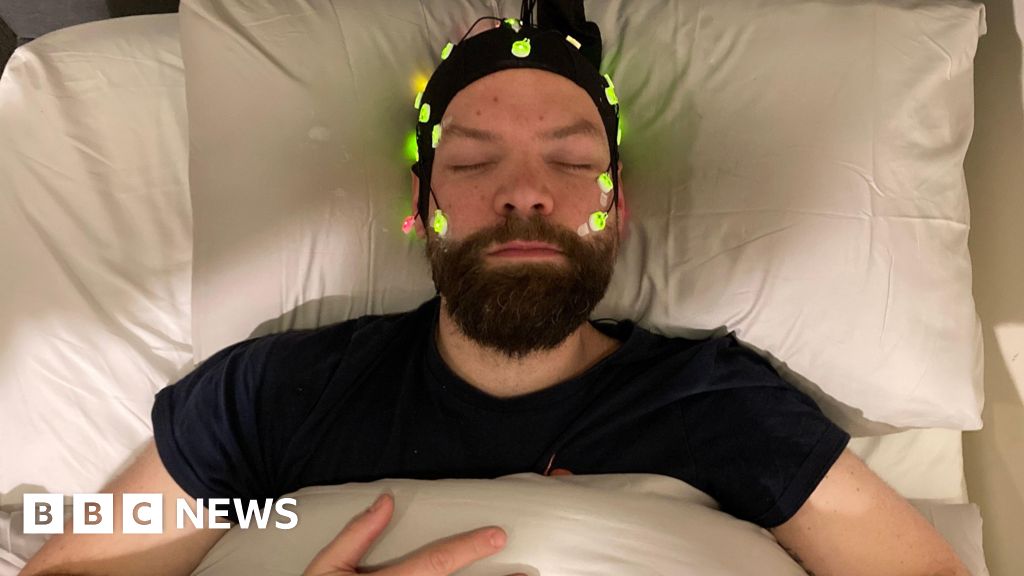Can a Night in a Laboratory Improve Sleep Quality?

In an era where sleep deprivation is increasingly common, many people are asking themselves if they are getting enough rest. As a new parent, I often find myself grappling with sleep-related discussions, and recently, I had the unique opportunity to delve deeper into the science of sleep at the University of East Anglia (UEA) in Norwich. This institution is at the forefront of groundbreaking research into the critical role sleep plays in our health and well-being. My eagerness to participate in an overnight stay at their state-of-the-art sleep laboratory was fueled by curiosity and a desire to understand my own sleep patterns.
According to the charity Mental Health UK, approximately 20% of individuals in the United Kingdom are not getting sufficient sleep. This statistic resonates with me, as I ponder whether I fall into that category. At UEA's Sleep and Brain Research Unit, scientists are investigating various aspects of sleep, including its effects on aging, balance control, and the intriguing relationship between gut health and sleep quality. With cutting-edge technology at their disposal, the researchers planned to monitor my brain activity throughout the night.
Upon entering the laboratory, I was surprised to find that the room resembled a typical hotel rather than a high-tech facility. Dr. Marcus Harrington, a lecturer in psychology, prepared me for the night ahead. He informed me that he would be sleeping on a camp bed in an adjacent room while supervising me via an array of sensors. As he fitted a snug capequipped with around 20 sensorsonto my head, I experienced a moment of discomfort, questioning my ability to fall asleep with such equipment. However, as I settled in for the night, I quickly forgot about the cap and drifted off around 11 PM, with Dr. Harrington monitoring my brain activity from the next room.
Surprisingly, despite the unusual circumstances, I managed to sleep quite well, waking only when my watch alarm buzzed at 7 AM. Typically, I am roused much earlier by my 16-month-old daughter, so this was a welcome change. After enjoying a brief breakfast, Dr. Harrington shared the data he had collected throughout the night. Displaying a graph of my brain activity on a screen, he explained how he could analyze various aspects of my sleep, such as the time it took to fall asleep, the duration of different sleep stages, and the number of times I awoke during the night. Your results indicate that you are not getting as much sleep as you should be, he said, noting the rapid transition into deep sleep, a finding that did not surprise me given my parenting situation.
After reviewing my results, Dr. Harrington elaborated on the significance of the sleep research unit. He explained that poor sleep is linked to a wide range of mental health issues. Almost every mental health problem is associated with inadequate sleep, he stated. However, he also emphasized that the exact reasons for this connection remain unclear. Nevertheless, he expressed optimism that the lab's findings could pave the way for improved understanding and treatment of mental health disorders in the future.
Dr. Alpar Lazar, who oversees the sleep unit and has dedicated over 20 years to studying sleep and its impact on brain health, also shared valuable insights. He noted that insufficient sleep can have detrimental effects on both physical and mental health and might even help stave off certain neurological conditions as we age. To promote better sleep habits, Dr. Lazar provided five key recommendations:
- Minimize Caffeine Intake: While caffeine can help you feel more alert during the day, it can disrupt your sleep later on. Its advisable to limit caffeine consumption, especially in the afternoon.
- Avoid Alcohol: Although alcohol may initially induce sleepiness, it can interrupt your sleep cycle and diminish sleep quality. Researchers have found that drinking before bed can hinder REM sleep, which is crucial for cognitive health.
- Limit Light Exposure: Light plays a significant role in regulating our circadian rhythms. To promote better sleep, its important to avoid bright lights in the evening and opt for dim lighting if you need to get up at night.
- Reserve Your Bed for Sleep: Engaging in activities like watching TV or checking emails in bed can confuse your brain about the purpose of your sleeping space. Establishing a strong association between your bed and sleep can enhance your ability to rest.
- Refrain from Napping: While it may be tempting to nap after a poor nights sleep, doing so can exacerbate sleep problems. Avoid naps unless absolutely necessary to ensure you accumulate sufficient sleep drive for the night.
Reflecting on my experience at the sleep unit, I have since made a conscious effort to incorporate Dr. Lazars recommendations into my routine. I have stopped answering emails from my bed, minimized my caffeine intake to the mornings only, and made it a point to turn off the lights when I wake up at night. Although my overall sleep duration hasnt changed dramatically, I feel like the quality of my sleep is improving. Its still early days, but I am optimistic that these changes are leading to a better nights rest, even if my toddler occasionally has other plans.
For the latest updates in Norfolk, you can follow BBC news on platforms like BBC Sounds, Facebook, Instagram, and X.
















